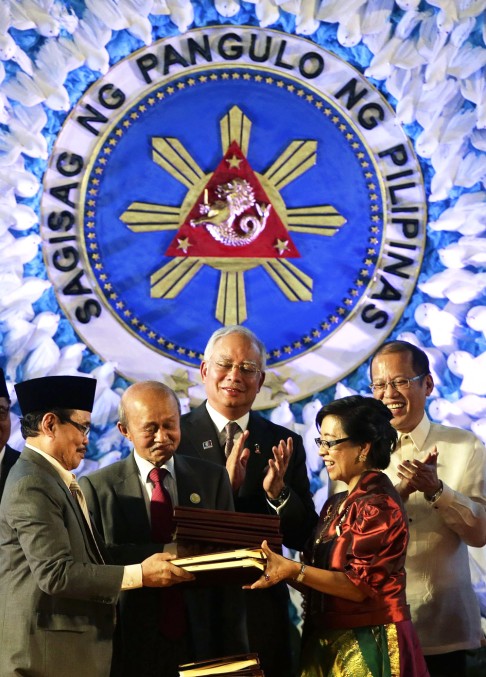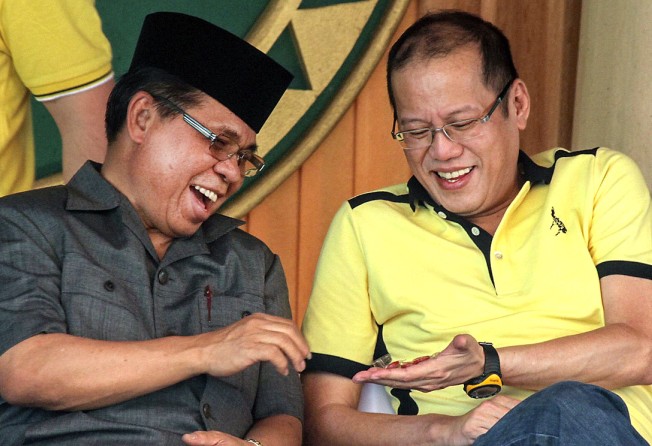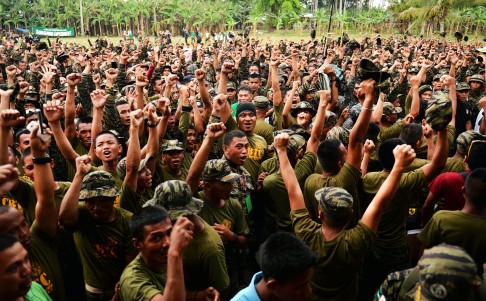
Manila's peace pact with Muslim rebels in jeopardy over government changes to deal
Deal 17 years in the making could unravel as Mindanao rebels say presidential lawyers' revisions and deletions are unacceptable

An historic peace settlement in the southern Philippines is at risk of breaking down as Muslim rebels accuse the government of going back on its word over a proposed law to create self-rule for the strife-torn region.
The two sides, who signed the deal in March to end nearly five decades of conflict, are holding urgent talks this week to try to iron out the unexpected obstacles to what had been seen as one of President Benigno Aquino's landmark successes.

A breakdown would risk a return to violence and a blow to hopes for an economic revival for resource-rich Mindanao island as potential investors in sectors such as agriculture and mining wait on the sidelines for the peace deal to be implemented.
Under the pact, the main rebel group - the Moro Islamic Liberation Front (MILF) - agreed to disband its guerilla force and rebuild communities in exchange for wider powers over the region's economy and society.
A joint government-MILF panel agreed details of the region's powers and relations with the central government this year, submitting a draft law for approval by Congress.
But the hitherto smooth progress has stalled after Aquino's legal team made surprise, sweeping changes to the draft law which the MILF says contravene the earlier agreement and would place unacceptable limits on their autonomy.
"We cannot accept this proposed law as it is," said Mohagher Iqbal, the MILF's chief negotiator. "We will lose face if we agree to this. Their version clearly departed from the letter and spirit of the peace agreement, which was the basis [of] the proposed law."
Their version clearly departed from the letter and spirit of the peace agreement
Iqbal's comments are the first public indication that the agreement is close to collapse. He said about 70 per cent of the nearly 100-page draft "Bangsamoro" law was either deleted or revised by Aquino's lawyers, who reviewed the document for two months after it was submitted in late April for vetting.
A copy of the revised legislation showed entire sections of articles on territory, resources, and government structure had been deleted or revised.
The peace deal - including provisions on revenue-sharing between the new region and the national government - was the product of more than 17 years of negotiations, brokered by Malaysia since 2001.
Analysts say the law appears to have fallen victim to recent legal and political setbacks suffered by Aquino, whose approval ratings have dropped after his flagship economic stimulus fund was declared illegal by the Supreme Court last month. He faces three impeachment complaints in Congress.
That has made Aquino, whose presidency has two years to run, wary of a new battle with the top court that could arise if the law contravenes the constitution.
The government's chief negotiator, Miriam Coronel Ferrer, denied the government had reneged on key pledges. "Let's not point fingers at each other," she said. "There were difficulties in the drafting of the law but the president is not afraid to gamble his political capital for this issue."
Aquino has promised the autonomous region would be in place by January 2015.
